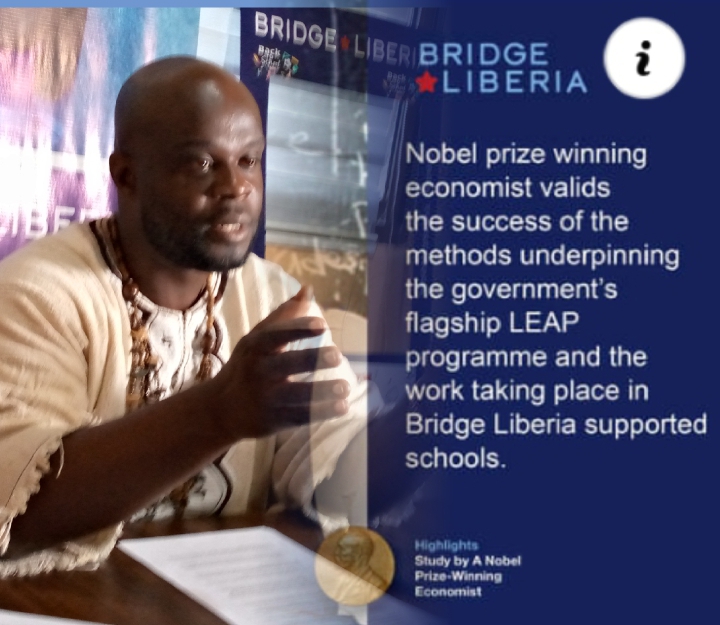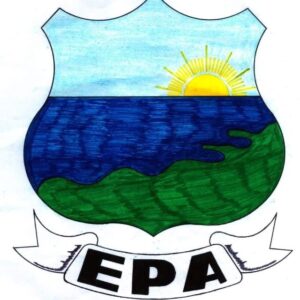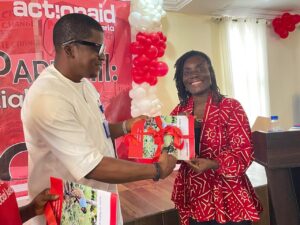BRIDGE LIBERIA METHODS OF TEACHING RECOGNIZED IN LATEST RESEARCH BY NOBEL PRIZE WINNER

By; Jerromie S. Walters
Oldest Congo Town, Liberia: Following it’s commitment in ensuring a standardized and better learning space for primary students across Liberia, Nobel Prize Winning Economist Professor Michael Kremer, has released a groundbreaking study showing ‘among the largest learning gains ever measured’ by a major study in international education.
Addressing a news conference mid Tuesday, June 14. 2022, the Managing Director of Bridge Liberia, Gbovadeh Gbilia noted that the methodology in the study is the same methodology that underpins the Liberian government’s flagship education program; Liberian Education Advancement Program (LEAP) and the work taking place at Bridge Liberia supported schools; its largest partner.
The study as narrated by Mr Gbovadeh Gbilia, was announced by Professor Kremer to Heads of States and Political leaders at the Education World Forum in London, which was also graced by Liberia’s Education Minister Professor Ansu Sonii and other officials making up the Liberian delegation.
Professor Michael Kremer’s study of NewGlobe’s methodological approach to teaching and learning, using one of NewGlobe’s programs, found primary school students, through junior high school, after two years in the NewGlobe program are nearly a whole additional year ahead of children taught using standard methods.
Interestingly, if replicated at scale across public education systems, the gains could be enough to put African children including Liberians from underserved communities on track to match their peers in countries with incomes three or four times higher.
The study also provided that for early childhood development (ECD) typically 3 and 5 year olds, children gain nearly an additional year and half of learning; learning in two years what students in other schools learn in three and a half years.
It further reveals that children taught using NewGlobe’s methods are three times more likely to be able to read a sentence by the time they are in first grade, relative to their peers in other schools. The World Bank estimates that 90% of 10 year-olds in Sub Saharan Africa do not reach this benchmark.
The NewGlobe methodology delivered a standard deviation increase of 1.35 in pre-primary learning and 0.81 in primary schools, a methodology which is the same as that used by Bridge Liberia; in context, this impact represents learning gains in the top 1% among large, rigorous studies in Africa.
Speaking about the study, Professor Kremer noted that the effects in the study are among the largest in the international education literature, particularly for a program that was already operating at scale.
“This study shows that attending schools delivering highly standardized education has the potential to produce dramatic learning gains at scale, suggesting that policymakers may wish to explore incorporation of standardization, including standardized lesson plans and teacher feedback and monitoring, in their own systems,” Mr Gbovadeh Gbilia disclosed.
However, considering the workings of the institution and Professor Michael Kremer findings, it is unarguably in affirmation of the Liberian Government’s LEAP partner Bridge Liberia which has been operating across Liberia’s 15 counties since 2017.
Bridge Liberia, a program in the NewGlobe portfolio, is the main partner in an innovative and philanthropically funded public private partnership, known as the Liberia Education Advancement Program (LEAP), designed by the Liberian Government to improve learning for students in public primary schools.
The program was the first Government program to use the methodology developed by NewGlobe and implement it as part of a public education system transformation. Liberia is now known and regarded as a model for government public education programs on the continent.
Howbeit, it is ironically the second study to examine the methodology used by Bridge Liberia to improve teaching and learning. A RCT study in 2019 showed that students in Bridge Liberia-supported schools had the equivalent of 2.5 years of additional learning compared to their peers.
“The Bridge Liberia approach to transforming public education, recommended by the World Bank, combines structured pedagogy with the gathering of real-time data supported by technology for accountability and feedback, especially as countries struggle to recover from the global COVID-19 Pandemic. Bridge Liberia focuses on teacher training and leverages technology to empower teachers and improve children’s learning outcomes, through intensive training, ongoing support, scientifically-based digital teacher guides, positive classroom management techniques and real-time monitoring of lessons,” Mr Gbovadeh Gbilia stressed.
The UNESCO Vice Chair for Education and Managing Director of Bridge Liberia, Gbovadeh Gbilia also asserted, “Improving the future for the Liberian youth is the most important task of the Liberian Government; the children are our future”.
Mr. Gbilia expressed excitement for the recognition of the institution, and also assured their commitment in ensuring the best for Liberian students. “As Liberians, we are proud that the techniques and methodology used to enable some of the greatest learning gains ever measured, are also being used in Liberian schools. We all want more for Liberia and its children and we are taking proactive steps to get there”.
He continued, “The data-driven scientific learning techniques that underpin this study by a Nobel prize winning economist Dr. Michael Kremer, is the blueprint for the work done as part of the Government’s LEAP program. They are currently supporting the Liberian Government to improve learning for over 75,000 students in 350 public primary schools across the country”.
Mr. Gbilia applauded the Liberian government for the partnership, and expressed his unwavering commitment in maintaining the relationship as he believes students on the Bridge Liberia program are learning at an accelerating level regardless of their ages.
Bridge Liberia is one of the programs supported by NewGlobe, a global education education organization supporting the improvement of public education at scale across State and nationwide programs to ensure more effective learning in classrooms.
The LEAP program is expected to be a central feature in the Government’s highly anticipated 5 year education sector plan, due to be released in fall 2022.



